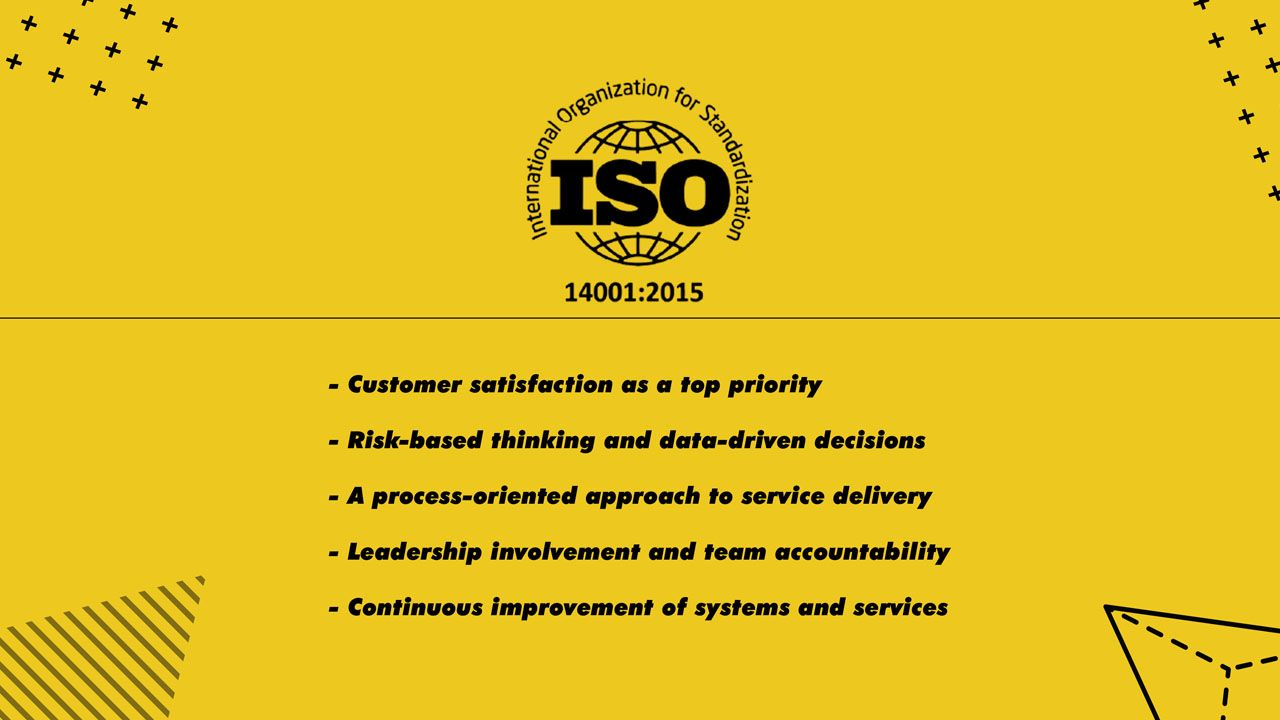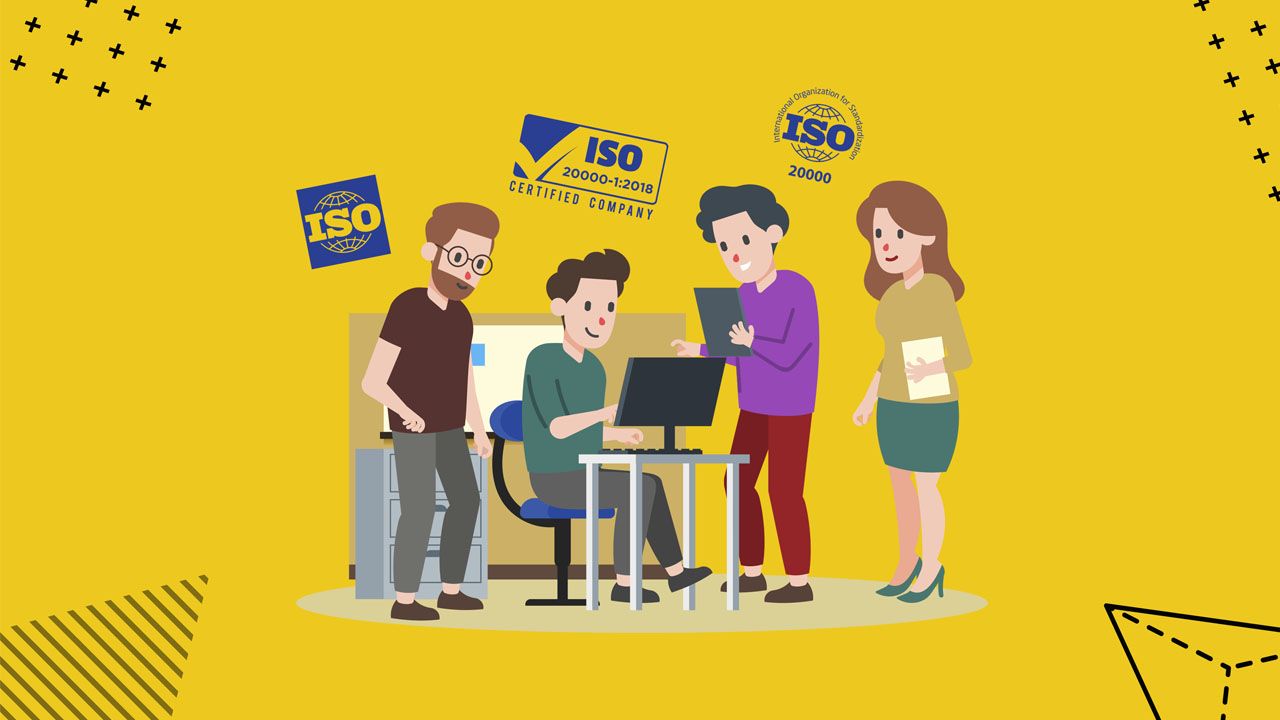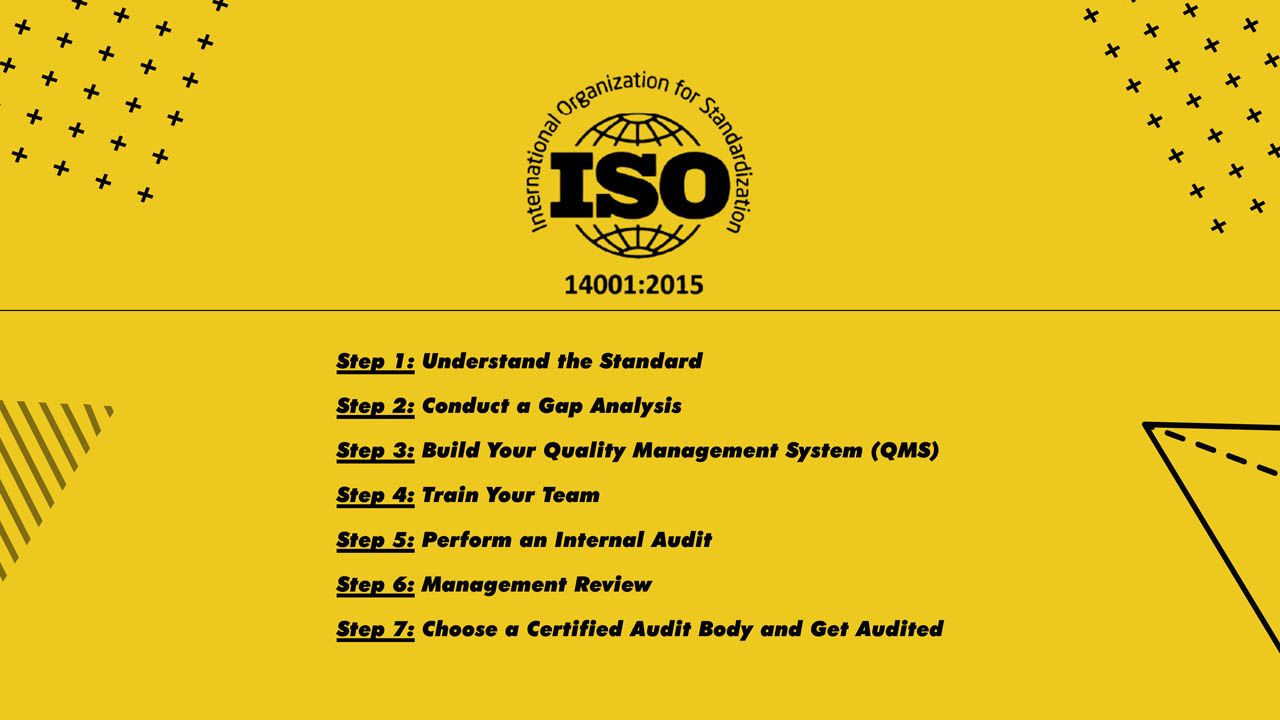
How to Get ISO 9001:2015 Certification for Software/IT Companies in Bangladesh: A Complete Guide
Get ISO 9001:2015 certified in Bangladesh! A step-by-step guide for software/IT companies to boost quality, efficiency, and global trust.
In today's fast-evolving digital economy, software companies in Bangladesh aim to meet global standards and earn the trust of international clients. One powerful way to do this is to get ISO 9001:2015 certification, a globally recognized standard for Quality Management Systems (QMS).
ISO 9001:2015 helps software companies improve internal processes, enhance client satisfaction, and prove their commitment to quality. Whether you're a startup, SME, or an established tech firm, getting certified can open doors to new markets, reduce errors, and create a culture of continuous improvement.
In this guide, you’ll learn everything you need to know about how your software company in Bangladesh can earn ISO 9001:2015 certification step by step.
What is ISO Certification for Software/IT Companies?
ISO 9001:2015 is an international standard developed by the International Organization for Standardization (ISO) that outlines the requirements for a Quality Management System (QMS).
For software companies, this means setting up structured and repeatable processes that ensure consistent service delivery, meet client expectations, and foster long-term growth.
Here’s what the ISO 9001:2015 standard emphasizes:
- Customer satisfaction as a top priority
- Risk-based thinking and data-driven decisions
- A process-oriented approach to service delivery
- Leadership involvement and team accountability
- Continuous improvement of systems and services
In short, ISO 9001:2015 helps companies shift from reactive problem-solving to proactive quality assurance.
Why Should Software Companies in Bangladesh Get ISO 9001:2015 Certified?
The software industry in Bangladesh is growing quickly. To stay competitive in both local and global markets, companies need to prove that they deliver reliable and high-quality services. ISO 9001:2015 certification helps you do just that.
Here are some key benefits:
- Improved Client Confidence: International clients prefer working with certified companies because it shows you follow best practices.
- Better Process Efficiency: The standard encourages smoother workflows, which can reduce bugs, delays, and rework.
- Global Recognition: ISO 9001:2015 is accepted worldwide. It opens doors to global tenders and contracts.
- Stronger Internal Culture: The certification process helps build a culture of quality and responsibility among team members.
- Reduced Operational Risks: With regular audits and documentation, your team can identify and address issues early.
So, if you're aiming to scale, attract foreign clients, or build a professional reputation, ISO certification is a smart investment.
Steps to Achieve ISO 9001:2015 Certification for Your Software Company
Now, let’s break down the process into easy, actionable steps:
Step 1: Understand the Standard
Before starting, get familiar with the ISO 9001:2015 requirements. These are grouped into several clauses, covering everything from leadership to performance evaluation.
Tip: You can download the standard from ISO.org or attend a short ISO 9001 training course to learn the core concepts.
Step 2: Conduct a Gap Analysis
Now, compare your existing processes with ISO 9001 requirements. This is called a Gap Analysis. It helps you identify areas where your company is falling short.
For example:
- Do you have a documented quality policy?
- Are roles and responsibilities clearly defined?
- Are customer complaints recorded and analyzed?
Once the gaps are clear, you’ll know what changes or improvements are needed.
Step 3: Build Your Quality Management System (QMS)
This is where you start developing the necessary documents and processes to align with the standard.
Key elements include:
- Quality policy and objectives
- Process maps and flowcharts
- Employee roles and training records
- Customer feedback procedures
- Incident reporting and improvement plans
Remember: Your QMS should reflect how you actually work, not just tick boxes. Keep it simple and relevant to your team.
Step 4: Train Your Team
Your QMS won't work if your team doesn’t understand it.
Conduct training sessions to help employees:
- Understand their roles within the QMS
- Follow standardized procedures
- Report issues or suggest improvements
- Prepare for audits and client reviews
A trained team leads to consistent delivery and better client satisfaction.
Step 5: Perform an Internal Audit
Before bringing in an external certification body, do a mock audit internally. This helps you find errors or non-conformities ahead of time.
During this step:
- Review documentation and process adherence
- Interview team members
- Record findings and take corrective action
The internal audit is also a requirement of the standard, so don’t skip it!
Step 6: Management Review
Senior management should now sit down to:
- Review the audit results
- Look at client feedback and performance data
- Identify risks and opportunities
- Approve the readiness for external audit
This step ensures leadership is fully committed to the QMS, something ISO auditors will definitely check.
Step 7: Choose a Certified Audit Body and Get Audited
Now it’s time to bring in a certification body accredited by the International Accreditation Forum (IAF).
Reputable certification bodies operating in Bangladesh include:
- TÜV Rheinland
- SGS Bangladesh
- Bureau Veritas
- TopCertifier
- Advanced Assessment Services
During the audit, they will:
- Review your QMS documentation (Stage 1)
- Visit your office to assess real-world implementation (Stage 2)
If you pass both stages, you will be awarded the ISO 9001:2015 certificate!
How to Maintain ISO 9001:2015 Certification
Once your software company in Bangladesh achieves ISO 9001:2015 certification, it's important to understand that certification is not a one-time event.
To maintain the certification, ongoing efforts are required to ensure that your Quality Management System (QMS) remains compliant with the standard. This includes continuous improvement and preparing for recertification audits.
Continuous Improvement
The core principle of ISO 9001:2015 is continuous improvement. Your company should regularly review and update the QMS to ensure it remains relevant, effective, and aligned with the latest standards. Here are some best practices to ensure continuous improvement:
- Regular Audits and Reviews: Conduct internal audits and management reviews to identify areas of improvement.
- Customer Feedback: Actively collect and analyze customer feedback to enhance the quality of your services and products.
- Employee Involvement: Encourage employees to participate in the improvement process through training, feedback mechanisms, and brainstorming sessions.
By continually assessing and improving your QMS, you not only maintain certification but also enhance your company’s ability to meet customer expectations and drive operational excellence.
Preparing for Recertification
ISO 9001:2015 certification is typically valid for three years. Towards the end of the certification cycle, you will need to prepare for the recertification audit. Here’s how to plan for this crucial step:
- Review the Past Year’s Audits and Improvements: Ensure all findings from previous audits have been addressed and improvements have been implemented.
- Documentation Updates: Update your quality management documentation to reflect any changes or new practices adopted.
- Employee Training: Keep your team informed about the latest quality management practices and ISO 9001 requirements.
- Conduct a Pre-Audit: Consider conducting a pre-audit internally or through an external consultant to identify gaps before the official recertification audit.
Common Challenges and How to Overcome Them
While ISO 9001:2015 certification offers numerous benefits, software companies often face challenges during the certification journey. Addressing these challenges proactively can help your organization stay on track and maintain its commitment to quality management.
1. Resource Constraints
Small and medium-sized enterprises (SMEs) in Bangladesh often face resource constraints that can make it difficult to implement and maintain ISO certification standards. Here are some strategies to overcome this challenge:
- Leverage Technology: Use quality management software to streamline documentation, audits, and reporting.
- Outsource Expertise: If internal resources are limited, consider hiring external consultants or auditors to guide you through the process.
- Focus on Key Areas: Prioritize critical areas of the QMS that will have the most significant impact on quality improvement.
2. Employee Resistance
Employee buy-in is essential for the success of ISO 9001:2015. Resistance to change can hinder progress, so it’s important to foster a culture that embraces quality and continuous improvement. Here’s how you can overcome employee resistance:
- Training and Awareness: Conduct regular training sessions to educate employees on the benefits of ISO 9001 and how it enhances their work environment.
- Engage Employees: Involve employees in decision-making processes, such as quality audits, to make them feel empowered and part of the solution.
- Top-Down Commitment: Ensure leadership actively supports and models the commitment to quality management.
3. Documentation Overload
ISO 9001:2015 requires substantial documentation to track processes, procedures, and improvements. For software companies, this can sometimes become overwhelming. Here are a few ways to streamline your documentation processes:
- Automate Documentation: Use document management systems to automate and organize your quality records.
- Simplify Documentation: Focus on key metrics and process documents that provide value to your QMS, avoiding unnecessary paperwork.
- Regularly Review Documentation: Keep your documentation up-to-date to ensure it remains relevant and aligned with ISO standards.
How We Can Help Get ISO Certification for Software/IT Companies in Bangladesh
To assist software and IT companies in Bangladesh with ISO certification, our approach is tailored to ensure a smooth, efficient process. We start by conducting a thorough gap analysis to assess current practices and identify areas of improvement.
Next, we provide clear guidance on implementing the necessary changes to meet ISO standards. From preparing for audits to ensuring compliance with ISO 9001:2015, ISO/IEC 27001:2013, and ISO/IEC 20000-1:2018, our support ensures your company successfully achieves and maintains certification, ultimately enhancing credibility, efficiency, and customer trust.
Final Thoughts
Achieving ISO 9001:2015 certification for your software company in Bangladesh involves a detailed process of understanding the standard, preparing your processes, and undergoing audits. After certification, the journey continues with ongoing efforts to maintain and improve your QMS, ensuring that your company remains competitive and compliant with international standards.
While obtaining ISO certification requires time, resources, and effort, the long-term benefits far outweigh the initial investment. Certification can elevate your company’s reputation, improve internal processes, enhance customer satisfaction, and set you apart from competitors in the global market.
Remember that maintaining ISO 9001:2015 certification is a continuous process of improvement. As your company grows and evolves, so should your QMS. Keep striving for excellence, and ISO 9001:2015 will serve as a valuable framework for sustaining high-quality services and products.
FAQs
How long does it take for a software company to get ISO 9001:2015 certified in Bangladesh?
Typically, the ISO 9001:2015 certification process takes 3 to 6 months for most software or IT companies in Bangladesh, depending on the organization's readiness, existing documentation, and resource availability.
What is the cost of getting ISO 9001 certification for an IT company in Bangladesh?
The cost can vary from BDT 80,000 to BDT 300,000 or more, depending on the size of your company, the complexity of operations, consultant fees, and the certification body you choose.
Is ISO certification mandatory for software companies in Bangladesh?
No, ISO certification is not mandatory, but it’s highly recommended for software and IT companies that want to build client trust, improve internal processes, and compete globally—especially for government or international contracts.
Which ISO standard is best for software development companies?
The most relevant ISO standards for software/IT companies are:
- ISO 9001:2015 (Quality Management System) – most common starting point
- ISO/IEC 27001 (Information Security Management) – for data-sensitive companies
- ISO/IEC 20000 (IT Service Management) – ideal for IT service providers
Can startups or small IT firms get ISO 9001 certified in Bangladesh?
Yes, even startups and small software companies can get ISO 9001:2015 certified. The standard is scalable and can be tailored to fit the size and structure of your organization with proper planning and documentation.
Comments
Your email address will not be published. Required fields are marked *

ISO 9001:2015 Certification Renewal in Bangladesh: Everything You Need to Know
Renew your ISO 9001:2015 certification in Bangladesh with ease. Learn the steps, costs, and key requirements to stay compliant and competitive.
LATEST POSTS

May 16, 2025



